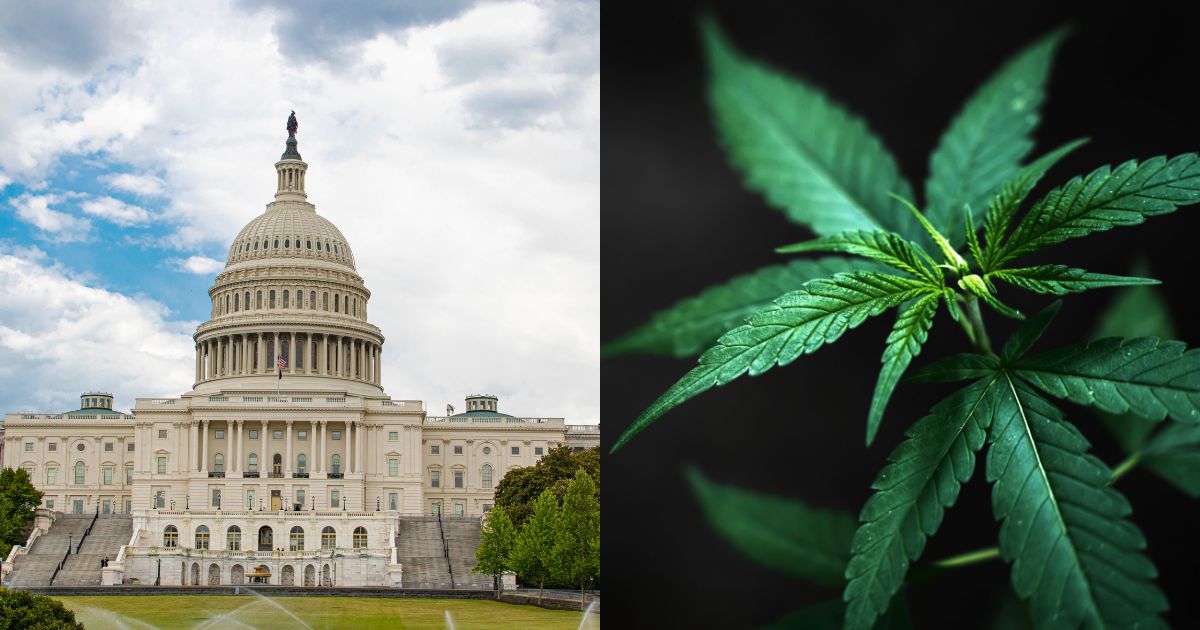A recent ruling by the Boston-based 1st U.S. Circuit Court of Appeals has reaffirmed the current stance of federal prohibition on marijuana, delivering a significant blow to cannabis businesses challenging the legality of the Controlled Substances Act (CSA).
This decision comes at a time when marijuana laws are evolving rapidly at the state level, creating a stark contrast with federal regulations.
The case, Canna Provisions Inc v Garland, was initiated by Massachusetts-based cannabis businesses, including Canna Provisions, Wiseacre Farm, and multi-state operator Verano Holdings.
The plaintiffs argued that federal prohibition, upheld by the Supreme Court’s 2005 Gonzales v. Raich decision, was no longer valid in the current legal landscape.
Their reasoning centered on shifts in marijuana regulation, specifically pointing to Congress’s reduced enforcement focus and the growing number of state-legal cannabis markets.
However, the court was unpersuaded by this line of argument. Chief U.S. Chief U.S. Circuit Judge David Barron wrote on behalf of a three-judge panel.
He emphasized that the Controlled Substances Act’s regulatory framework remains constitutional. This ruling comes despite the evolving marijuana landscape in the U.S.
The Gonzales v Raich Precedent and the Argument of Changing Times
The plaintiffs sought to overturn Gonzales v. Raich, a ruling where the Supreme Court upheld the federal government’s right to criminalize marijuana use and possession—even in states where it was legalized for medical purposes.
That decision relied on the Commerce Clause, arguing that marijuana regulation fell under Congress’s authority due to its potential impact on interstate commerce.
Fast forward two decades, and the landscape around the prohibition of marijuana has significantly changed. Today, 38 states have legalized marijuana for medical or recreational use, and Congress has introduced measures like the Rohrabacher-Farr Amendment to prevent federal interference in state-regulated medical cannabis programs.
Plaintiffs argued that these changes undermined the basis for the federal government’s regulation of marijuana. David Boies, the litigator representing the businesses, contended that Congress had effectively abandoned its goal of controlling all marijuana-related activity by creating exemptions and allowing state markets to flourish.
Why the Court Rejected the Challenge to Marijuana Prohibition
Despite the compelling arguments presented by the plaintiffs, the court found no justification to overturn Gonzales v Raich or reinterpret the law.
Judge Barron stated that the CSA’s framework still applies to marijuana’s regulation for non-medical purposes, as the plaintiffs were involved in.
He warned that a decision in favor of the plaintiffs would create a “nationwide exemption” to the federal prohibition, which he deemed inconsistent with the law upheld in 2005.
The court noted that Congress’s appropriations rider protecting state medical marijuana laws was limited in scope. It did not apply to recreational marijuana. It also did not apply to other cannabis uses.
The judges also pointed out that the federal government has reduced enforcement of the CSA for state-legal cannabis businesses. However, this does not mean Congress has given up its authority to regulate marijuana.
Jonathan Schiller, an attorney for the plaintiffs, stated that they are considering taking the case to the U.S. Supreme Court. This step would address the current legal framework surrounding cannabis at the federal level.
Interestingly, Supreme Court Justice Clarence Thomas, a known strict conservative, expressed skepticism about the continued constitutionality of marijuana prohibition in 2021.
In a statement related to another case, he questioned whether the CSA’s regulation of marijuana remains “necessary or proper,” given the federal government’s changing enforcement priorities. This suggests that maybe the current Supreme Court may be open to reconsidering marijuana’s legal status.
Larger Implications of the Ruling
The ruling is a setback for cannabis businesses seeking relief at the federal level. It highlights the ever-growing disconnect between state and federal marijuana laws.
The growing number of state-legal marketplaces is transforming the cannabis industry. At the same time, Congress’s selective anti-prohibition measures add complexity to the landscape.
This creates a fragmented framework that makes compliance challenging. As a result, cannabis companies struggle to fully thrive.
The Justice Department’s recent efforts to reclassify marijuana from a Schedule I drug to a Schedule III drug signal incremental progress, albeit a slow one.
However, this does little to address the larger issue of federal prohibition and its clash with the burgeoning state-regulated cannabis industry.
The plaintiffs in this case are not alone in their frustrations. Many within the cannabis industry believe that federal prohibition is an outdated concept that fails to reflect the shifts in public opinion, state policy, and scientific understanding surrounding marijuana.
The rejected appeal highlights the challenges the cannabis industry continues to face. Operating under conflicting state and federal regulatory frameworks remains a significant hurdle. States have become case studies for cannabis policy innovation.
However, federal laws are still rooted in prohibitionist paradigms. These outdated laws don’t align with the realities of today’s market.
For now, cannabis businesses operating in state-legal markets must remain cautious about federal legal risks. We should also continue advocating for reform at the federal level.
Whether through litigation or legislative efforts, the industry’s fight for equitable and commonsense marijuana policies is far from over.
- Why Cannabis Companies Are Looking to Europe for Business Opportunities
- Retail Spotlight – New Día Fenway in Boston, MA
- Federal Appeals Court Rejects Challenge to Marijuana Prohibition
- June Marks National Men’s Health Month & This Year Cannabis Comes to the Table
- Call to Action: Last Push For AB564 to Stop The Excise Tax Hike
- How German Cannabis Brands Can Fast-Track Success by Partnering with U.S. Cannabis Experts






















